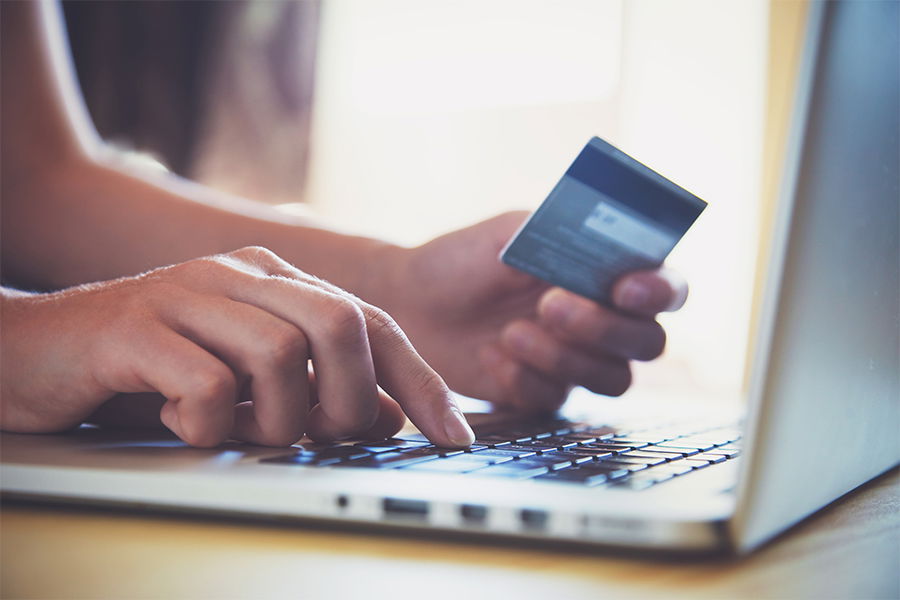Struggling to get approved for a credit card because of bad credit or no credit history? A secured credit card might be your best way to start building—or rebuilding—your credit. These cards work just like traditional credit cards, but they require a refundable security deposit that acts as collateral.

In this guide, we’ll break down exactly how secured credit cards work, how they can boost your credit score, and what to look for when choosing the right one.
Why Secured Credit Cards Exist in the First Place
Most credit cards require at least decent credit. But if you have no credit history or a low credit score, you’ll probably get denied. That’s where secured credit cards come in.
Secured credit cards are designed to give you a chance to prove yourself. They work like regular credit cards, but they require a refundable deposit up front. That deposit reduces the risk for the bank—and gives you a way to build or rebuild your credit score.
How does a secured credit card work?
When you open a secured credit card, you pay a deposit to the bank. That deposit becomes your credit limit. If you put down $300, you can spend up to $300 on your card.
You’ll use the card just like any other credit card. You can shop online, pay bills, and make everyday purchases. Each month, you’ll get a statement and need to make at least the minimum payment. Paying in full helps you avoid interest charges.
Your deposit stays with the bank as long as the account is open. If you close the card or upgrade to an unsecured card, and your balance is paid off, you’ll get your money back.
See also: Best Secured Credit Cards of January 2026
How to Use a Secured Credit Card the Right Way
The goal with a secured credit card isn’t just to spend—it’s to build credit. That means you should treat it like a tool, not a crutch.
Here’s how to use it the smart way:
- Start small: Use the card for one recurring bill, like a streaming service or phone plan.
- Pay it off in full: Never carry a balance if you can help it. The interest rates are usually high.
- Stay under 30% of your limit: This helps keep your credit utilization ratio low, which boosts your credit score.
- Set up autopay: Automate at least the minimum payment to avoid late fees or missed payments.
Consistency is what matters most. You don’t have to use the card often—but when you do, make sure you pay on time.

How Secured Cards Help Build Your Credit
Secured credit cards report your activity to the three major credit bureaus—just like regular credit cards. That means every on-time payment and every low balance helps to improve your credit score.
Here’s how they make a difference:
- Payment history: This is the biggest factor in your credit score. Paying your bill on time every month helps you build trust with lenders.
- Credit utilization: Keeping your balance low compared to your credit limit shows that you’re managing your credit well.
- Account age and mix: A secured card adds another type of account to your credit report and contributes to the length of your credit history over time.
If you manage the card responsibly, you may start seeing credit score improvements in just a few months.
See also: How to Build Credit From Scratch
Secured Credit Card vs. Unsecured Credit Card
The biggest difference is the deposit. Secured credit cards require one. Unsecured cards don’t.
- Unsecured credit cards are what most people think of when they hear “credit card.” They’re based on your credit score, income, and overall financial profile. If you qualify, you can get a credit limit without putting down money up front.
- Secured cards are for people who are rebuilding or starting from scratch. They’re easier to get, but they usually come with lower limits and higher interest rates. Some may charge annual fees.
Over time, many people who start with a secured card can graduate to an unsecured card. That often happens after six to twelve months of responsible use.
Pros & Cons of Secured Credit Cards
Secured credit cards are a helpful tool, but they’re not perfect. Here’s a quick look at what they offer—and what to watch out for.
Pros
- Easier approval: Even with bad or limited credit, you can usually get approved.
- Credit building power: On-time payments and low balances can help improve your credit score.
- Works like a regular card: You can use it anywhere that accepts Visa or Mastercard.
- Potential to earn interest on your deposit: Some credit unions or banks offer this perk, but it’s rare.
- Refundable deposit: You’ll get your deposit back when you close the account or upgrade—if your balance is paid off.
Cons
- Upfront deposit required: You’ll need to come up with a few hundred dollars before you can open the account.
- Low credit limits: Most secured cards start with limits between $200 and $500.
- Possible annual fees: Some cards charge fees that eat into your available credit.
- High interest rates: Carrying a balance gets expensive fast.
Best Secured Credit Cards to Consider
Not all secured cards are the same. Some have better terms, fewer fees, or easier upgrade paths. Here are a few top picks worth considering:
Discover it® Secured Credit Card
The Discover it® Secured Credit Card is ideal if you want to build credit while earning rewards. Key features include:
- Earn 1–2% cash back on purchases
- No annual fee
- Free access to your FICO credit score
- Automatic account review for upgrade after seven months
- Reports to all three credit bureaus
Capital One Platinum Secured Credit Card
The Capital One Platinum Secured Credit Card is a smart pick for beginners thanks to its low deposit requirement and no annual fee. Key features include:
- Deposits as low as $49 for a $200 credit line (based on credit)
- No annual fee
- Reports to all three credit bureaus
- Considered for a higher limit after six months
How to Upgrade to an Unsecured Credit Card
Most secured card issuers offer a path to upgrade. If you’ve used the card responsibly for six to twelve months, you may qualify for an unsecured card.
Start by contacting your card issuer and asking if your account is eligible for a review. Some banks do this automatically, while others require you to request it.
When you’re approved for the upgrade:
- Your deposit will be refunded, usually within a few billing cycles.
- You may get a higher credit limit or new perks like rewards or a lower APR.
- If possible, ask the issuer to convert your existing account instead of opening a new one. That way, you keep your credit history intact and avoid shortening your average account age.
If your current issuer doesn’t offer an upgrade option, you can also apply for a new unsecured card with a different company once your credit score improves.
Final Thoughts
Secured credit cards give you a second chance—or a first shot—at building a strong credit score. They’re simple, accessible, and effective when used the right way.
The key is consistency. Use the card for small purchases, pay it off in full each month, and monitor your credit progress. Over time, that small deposit can lead to much bigger financial opportunities.
If you’re just getting started or working to rebuild, a secured card can be a smart first step toward better credit and more flexible options down the road.
Frequently Asked Questions
How much will a secured credit card raise my score?
It depends on your starting credit score and how you manage the card. If you pay on time and keep your balance low, some people have seen their credit score increase by up to 200 points in 6 to 12 months—especially if they started in the 500s or below.
Do I get my security deposit back if I close my secured credit card?
Yes—if your balance is paid off and your account is in good standing, you’ll get your deposit back when you close the card.
Should I pay my secured credit card in full?
Yes, paying your balance in full is the best way to avoid interest and improve your credit score. You don’t need to carry a balance to build credit.
Is a secured credit card the same as a prepaid card?
No. A secured card is a real credit card backed by a deposit and reports to the credit bureaus. A prepaid card is more like a debit card—it doesn’t affect your credit.
How often should I use my secured credit card to build credit?
You don’t need to use it often—just enough to show activity. One or two small purchases a month are enough, as long as you pay on time and keep your balance low.


